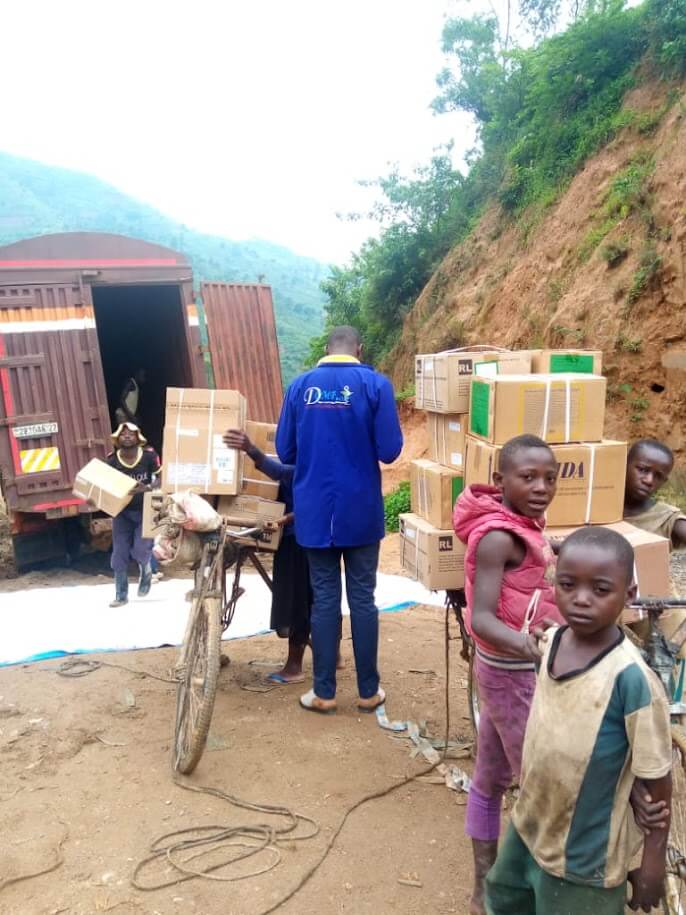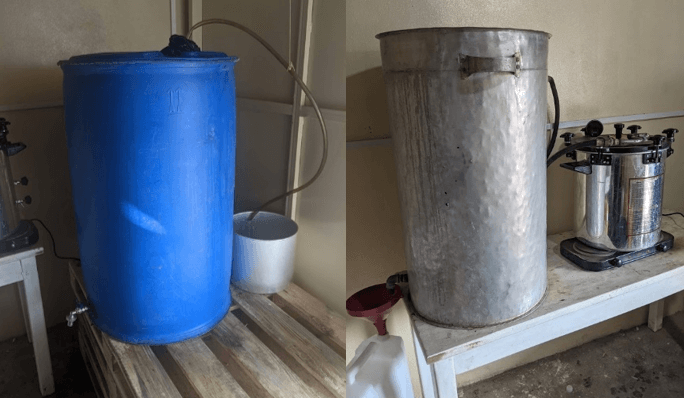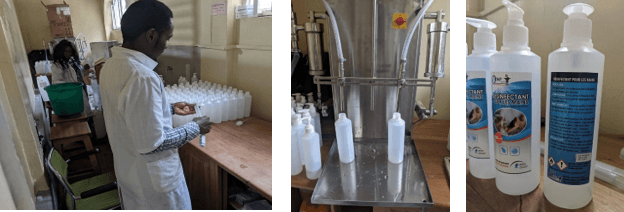DCMP (Depot Central Medico-Pharmaceutique) is a faith-based non-profit organization operating in DR Congo/South-Kivu since 1997. It is a member of the Church of Christ in Congo (ECC) and the Ecumenical Pharmaceutical Network (EPN). DCMPs’ mission is to provide a secure framework for the supply of generic essential medicines, materials and medical consumables, and laboratory inputs to health facilities and Government partners (NGOs, ASBL) in South Kivu and Eastern DR Congo. DCMP works towards improving access to quality medicines and strengthening of health systems.
Introduction
Since the COVID-19 pandemic was declared a public health emergency of international concern by the World Health Organization (WHO) on January 30th 2020, the negative effects of this pandemic have been strongly felt on the socioeconomic level globally, and especially in countries that have been hit.
The lockdown measures introduced to curb the spread of the pandemic created a shock in the demand and supply of products; which means that the Democratic Republic of Congo, relies more on imports and generally face difficulties in the procurement of pharmaceuticals. DCMP 8e CEPAC has not been spared and this has affected its activities positively, but also negatively.
Supply of pharmaceuticals
Since the outbreak of this pandemic, all countries affected by the COVID-19 disease have seen their needs for hand sanitizers, PPEs and specific drugs increased exponentially. As a result, countries that produced and exported pharmaceutical supplies for DCMP have resulted to utilizing the supplies within their borders thus imports have become increasingly scarce and consequently, the imported products have become expensive.
Increase in sales
The COVID-19 pandemic was declared in DRC in March 2020 while we were waiting for deliveries placed in the year 2019. With products received within the COVID-19 lockdown period, we were able to sell without having to store them for a long time because there was a high demand.
Nevertheless, border closures have not prevented legal suppliers from placing orders for drugs across borders without traveling. This situation allowed us to sell products even though the suppliers revised their prices upwards, and the logistics were not as before. At one point, the only buying criteria was on the basis of the availability of products.
The table below shows how the consumption of some items increased significantly in the year 2020 compared to 2019.

The increase in sales in 2020 has also allowed us to reduce losses due to expiration of most drugs, as shown in the chart below.

Manufacturing of denatured alcohol and hand sanitizer
As a result of alcohol shortage to manufacture hand sanitizers, DCMP resolved to manufacture ethanol from the alcoholic fermentation of sugar, and the results were rather promising.

Fermentation and distillation processes in the manufacture of ethanol
Further, due to the increasing demand for hand sanitizers and the difficulty of purchasing sufficient quantities from outside, the Panzi District Referral Hospital started to produce it locally, and managed to cover all the hospital’s needs since March 2020.
From March 2020 to January 2021, a total of 7975 bottles (500 ml) of hand sanitizer (80% alcohol) were produced. The average monthly consumption has increased from 97 bottles before the COVID-19 to 725 during the COVID-19 pandemic. Apart from the production of hand sanitizers at Panzi hospital, DCMP also produced hand sanitizers for other health facilities that are members of the Church of Christ in Congo (ECC) with the support of German Institute for Medical Mission e. V. (DIFAEM).

Production of hand sanitizers at DCMP
Challenges
Due to the pandemic, we are facing logistical challenges associated with lengthy delivery times, stock outs due to increasing demand for some essential products, and cancellation of product orders at the request of suppliers in local governments. As part of efforts to overcome these challenges, we have resulted to local manufacturing of alcohol, increased the number of suppliers in our list and use of regional manufacturers.
On the other hand, sales for some items commonly sold in large quantities in the past years, decreased in 2020, such as ibuprofen and cefixime tablets, nystatin vaginal ovule, chlorhexidine + cetrimide solution
Lessons learned and conclusion
During this pandemic, we have learnt that if pharmaceutical industry regulations are adhered to appropriately in developing countries, complying pharmaceutical organizations could flourish quickly to the detriment of illicit suppliers.

The COVID-19 pandemic has exposed our level of emergency management and our weaknesses in the supply chain system. However, we noted that drug-producing countries were not as affected by stock outs as the importing countries. Governments should support local production of their countries to avoid the need to always import finished products.
